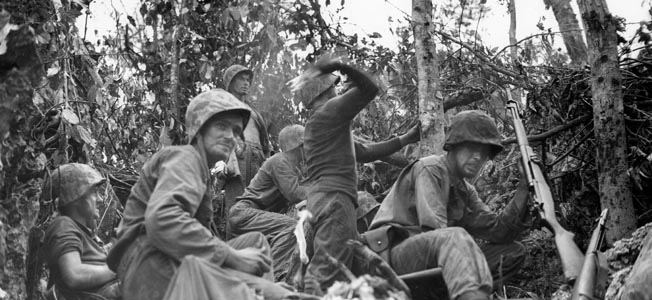
Japan
The Battle of Peleliu: Was it necessary?
by Eric NiderostIf Peleliu was one of the bloodiest campaigns of the Pacific Theater, it was also one of the least known until recently. Read more

Japan
If Peleliu was one of the bloodiest campaigns of the Pacific Theater, it was also one of the least known until recently. Read more
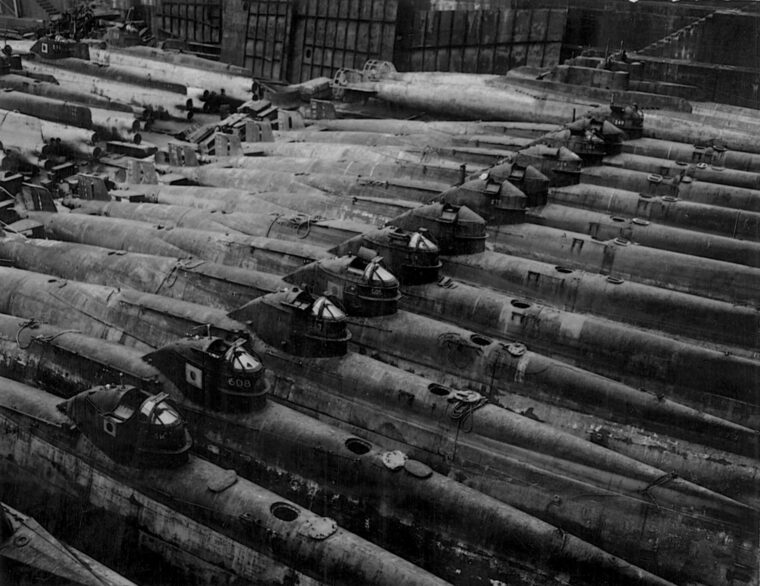
Japan
During the early hours of December 7, 1941, five midget submarinesof the Imperial Japanese Navy waited to enter Pearl Harbor, the anchorage of the U.S. Read more
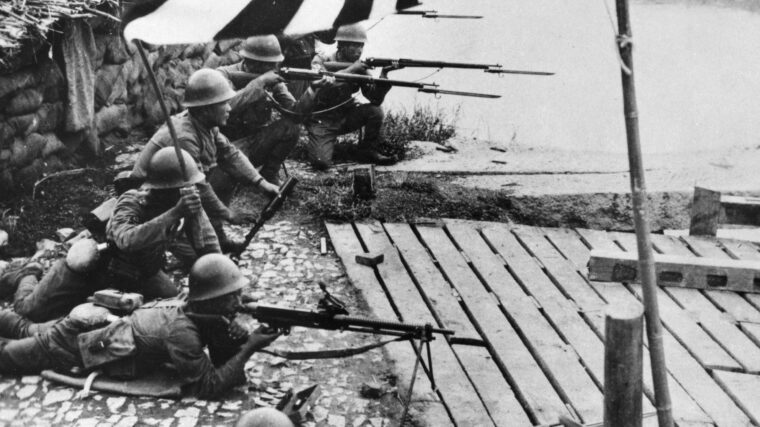
Japan
Around 10 o’clock on the morning of December 13, 1937, New York Times correspondent Hallett Abend received an unexpected visitor: Rear Admiral Tadao Honda of the Imperial Japanese Navy. Read more
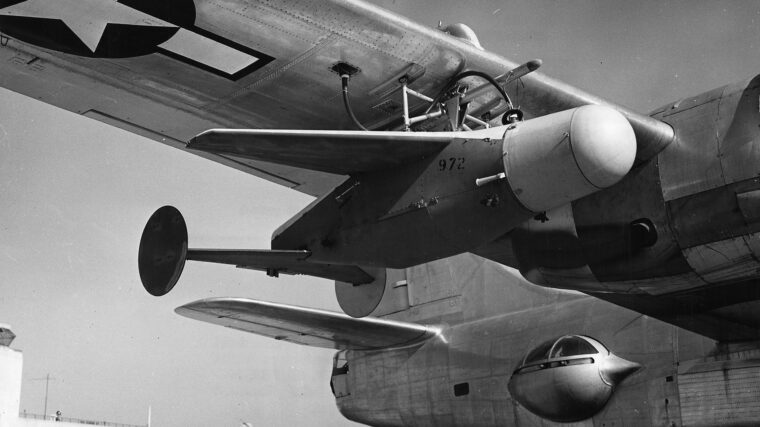
Japan
On May 27, 1945, U.S. Naval Reserve Lieutenant Leo Kennedy was patrolling from his station at Yonton Field in Okinawa. Read more
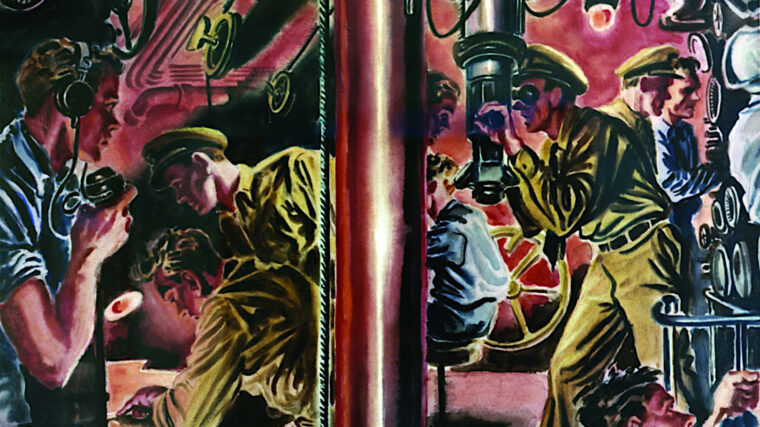
Japan
At 12:30 am, October 9, 1943, Commander Edward S. Hutchinson spotted his first targets as a submarine commander. Read more
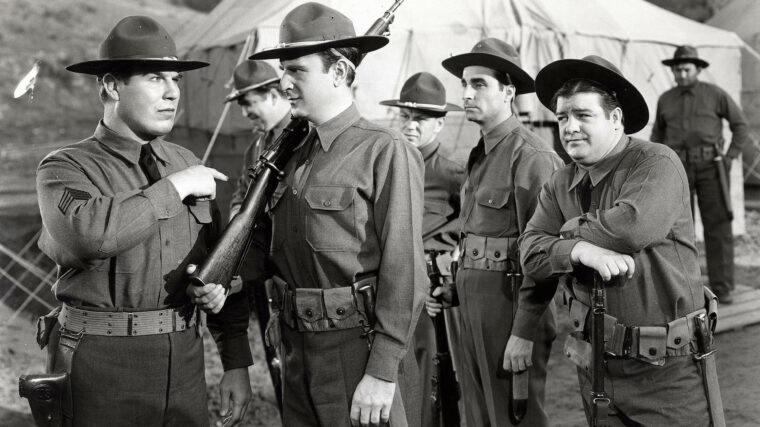
Japan
World War II came to the Hollywood motion picture studios, the “Dream Factories” as they were sometimes called, the day after Pearl Harbor. Read more
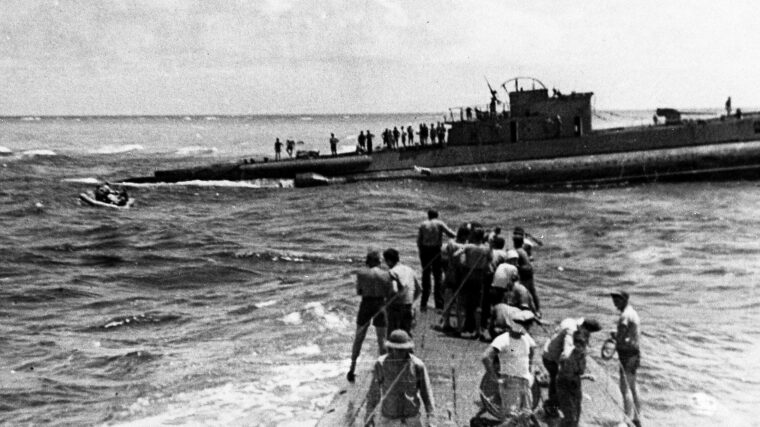
Japan
As the submarine USS Cod left Apra harbor, Guam, on the afternoon of June 26, 1945, for her seventh war patrol, her crew of 97 officers and enlisted men were all but certain that their new assignment was to be junk hunting—a thankless and dangerous job that in the words of one Cod crewman saw “Uncle Sam risk a seven million dollar submarine and crew to sink a leaky sailboat not worth more than $20,000!” Read more
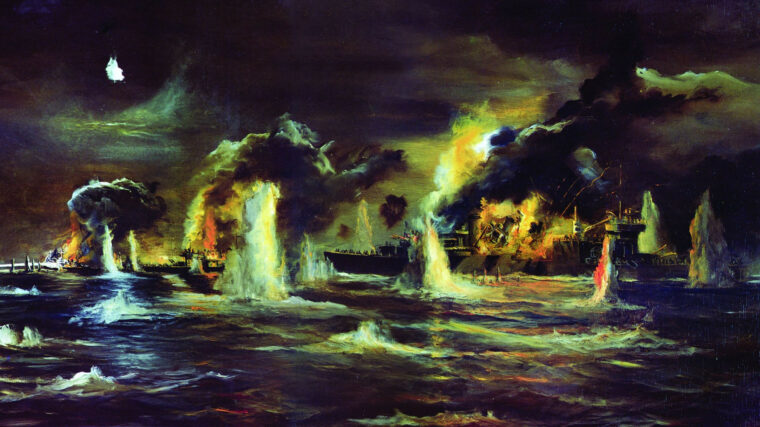
Japan
Admiral Ernest King could not believe what he was reading. The graying 63-year-old chief of U.S. naval operations had been awoken from his sleep. Read more
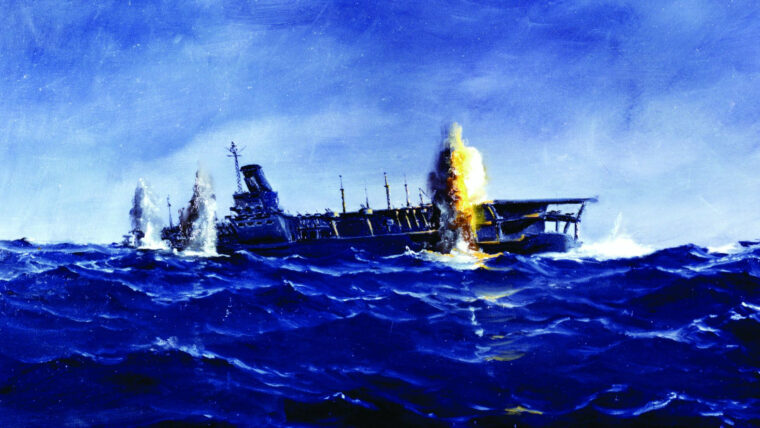
Japan
The first torpedo struck the Shinano carrier farthest aft. Over the next 30 seconds three more warheads detonated against the massive aircraft carrier’s hull, working their way forward. Read more
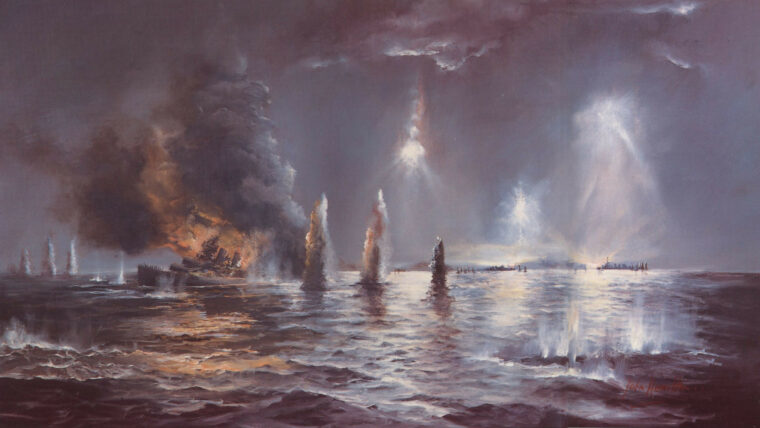
Japan
“One large, two small vessels, one six miles from Savo off northern beach, Guadalcanal. Will investigate closer.” Read more
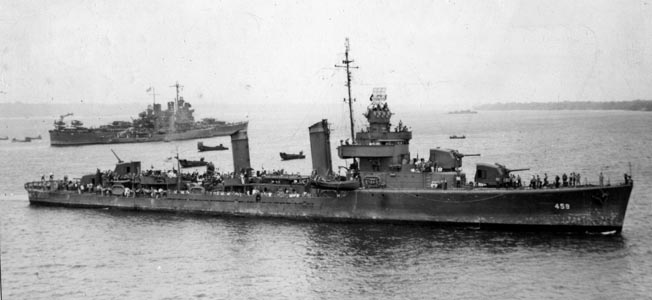
Japan
The eight-inch shell that penetrated the cruiser’s hull and threatened to blow up her forward magazines was a Type 91 armor-piercing shell, which had been designed to continue through the water when it fell short of its target and penetrate the ship’s hull below the waterline. Read more
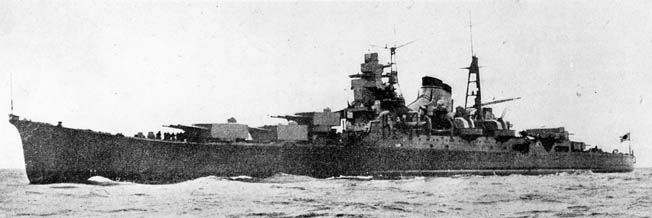
Japan
Japan had serious difficulties deploying her manpower, and a few examples illustrate some of the worst events. Read more
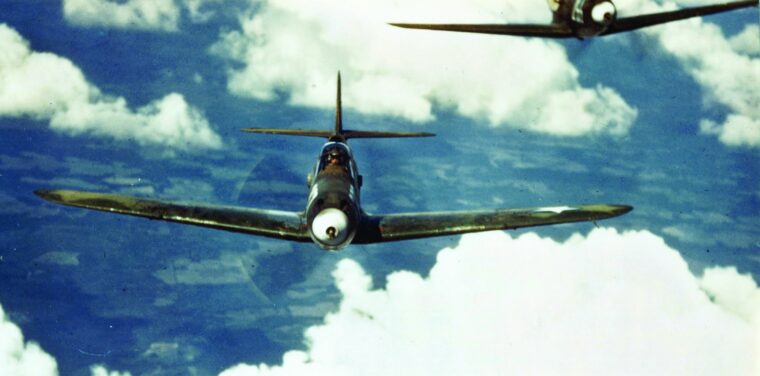
Japan
Common wisdom has long held that Japanese pilots and aircraft, particularly their fighters, were superior to the American, Australian, and British counterparts they faced in combat in the Philippines and Southeast Asia in the opening months of U.S. Read more
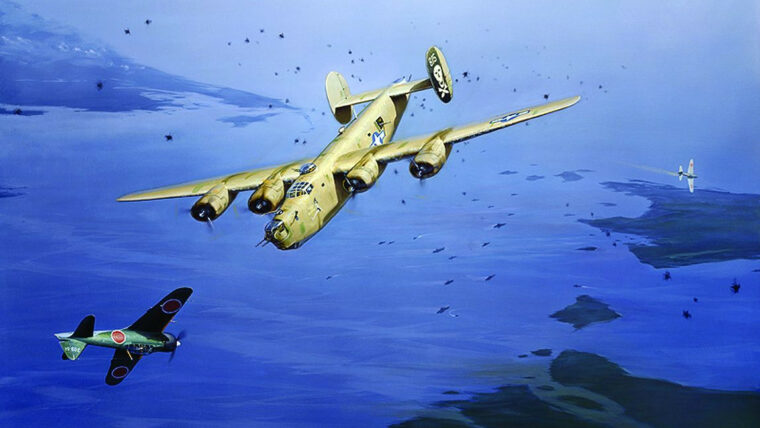
Japan
The 90th Heavy Bombardment Group, known as the Jolly Rogers, was an element of the Fifth Air Force headquartered in Brisbane, Australia. Read more
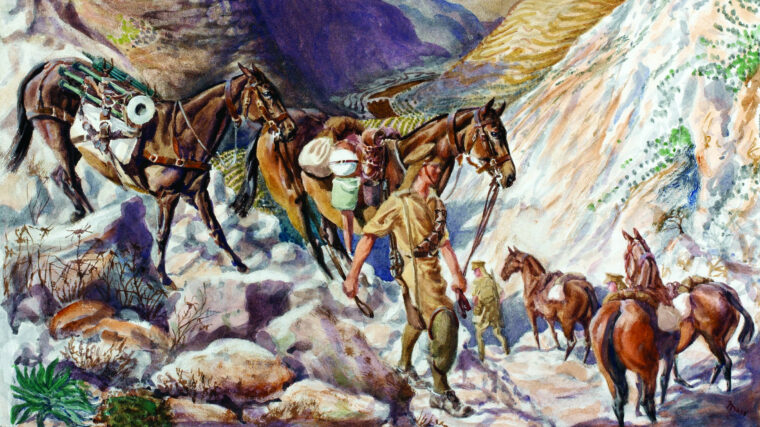
Japan
Not all World War II heroes were men or women. Some were four-legged, hoofed, or winged. They included horses and mules, elephants, and dogs as well as more exotic animals such as bats, camels, reindeer, and pigeons. Read more
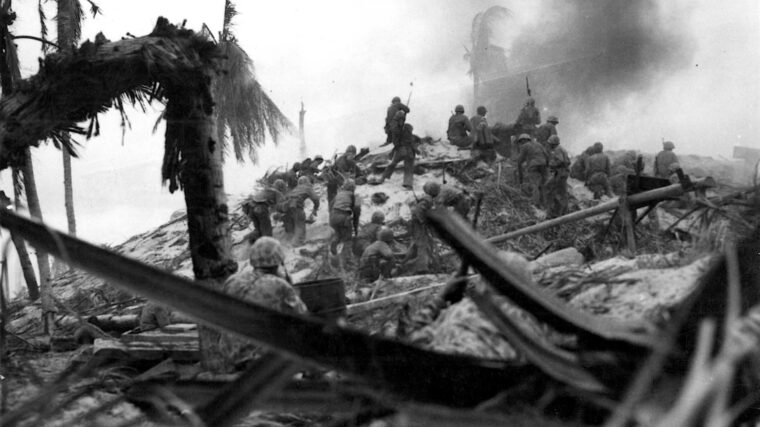
Japan
Rear Admiral Keiji Shibasaki, commander of the elite Japanese garrison entrenched on tiny Betio Island in the central Pacific Ocean, boasted in mid-1943 that his heavily fortified island redoubt could hold out “against a million Americans for a thousand years.” Read more
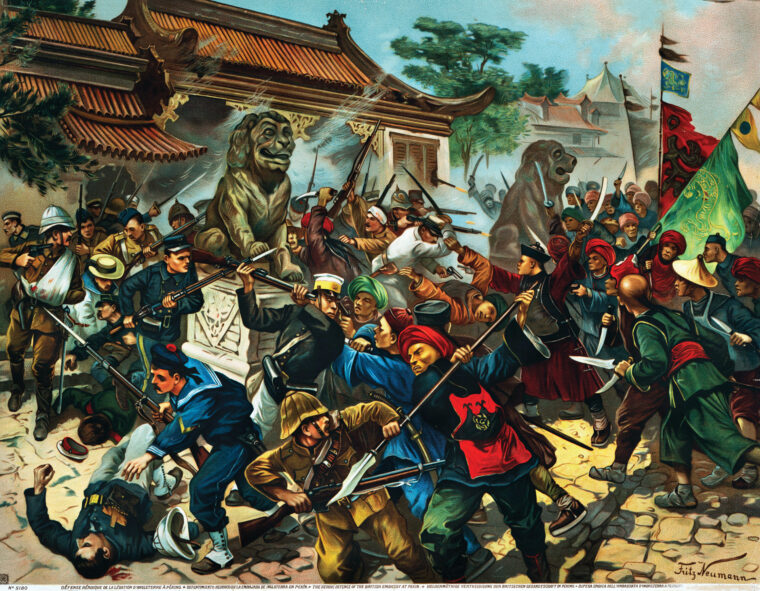
Japan
Captain John T. Myers’ detachment of U.S. Marines was far from home on July 3, 1900, in the thick of the Boxer Rebellion. Read more
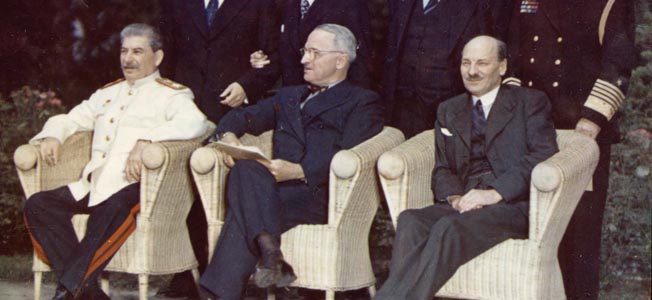
Japan
During the more than 60 years since the detonation of the first atomic bombs—and the only time nuclear weapons have ever been used operationally—a major debate has erupted over the Hiroshima and Nagasaki bombings. Read more
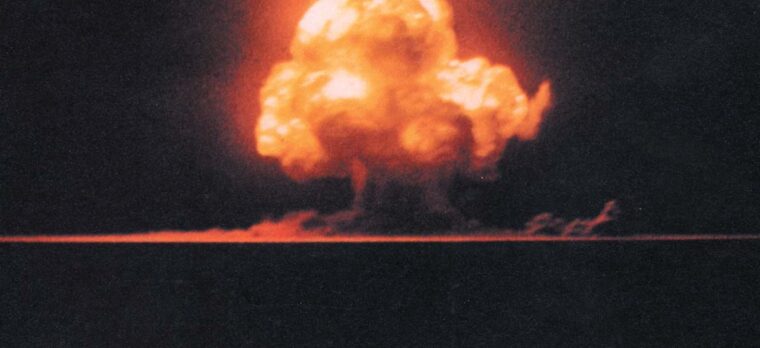
Japan
On August 7, 1945, the day after the atomic bombing of Hiroshima, President Harry S. Truman announced, “The force from which the sun draws its power has been loosed against those who brought war to the Far East. Read more
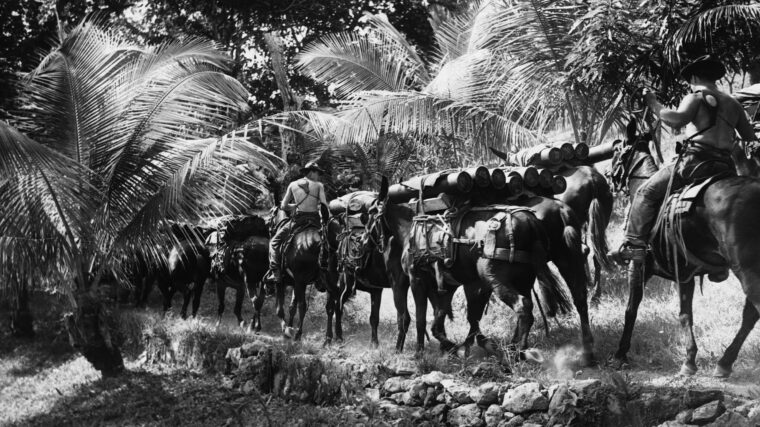
Japan
In the words of a veteran of the China-Burma-India Theater, retired Technical Sergeant Edward Rock Jr., [they] “served without a word of complaint or lack of courage. Read more